
Sociopathic eggregore vs honest men. Comment on the Golem
Leonardo AnfolsiSociopathic Eggregore vs Honest Men - the match is broadcast on a delayed basis with commentary from The Golem.
A deception into which we fall easily, we benevolent ladies and honest men, is to believe that all the others are like us: honest, honest or, at least, not oriented towards the most extreme wickedness.
In reality this is not the case - we know it well - and it would be trivial to explain why, it would really be enough to understand what Freud said to recognize another epochal betrayal in vogue today: his. He smoked cigars, snorted coke, and carried a mouth tumor to his grave; being a materialist, therefore, but without paying for those consequences that instead we find ourselves on the cup if we end up intubated, irradiated, chemotherapy, smoking liquid fetenzie, or intoxicated in a pharmacological coma.
But here we can prefigure another possible mistake by slipping into the "categories of the spirit", but always in a "psychoanal" key; here then is a trivial example with which, however, I introduce something that will become interesting. Let's start: if, let's suppose, we support Inter, we are facilitated to believe that all Interisti are as good and talented as us, while it happens that an Inter ultras, fighting with one from Bari, pushes even us "normal" Interisti, making us trip . We passed by and saw everything - the brawl had started from the Inter fans - despite this, involuntarily, we will continue to think that there was a good reason for the brawl, and this even if we were implicated in it. Our mind focuses on the spit of the Bari player because he doesn't want to see the push of the exaggerated Inter player. Partisan spirit? Parochialism? Desire not to pass for bad guys en masse?
At this point, here is that, in no particular order… Who is richer or poorer than us, who is smarter or less smart than us, who doesn't look like us; it's about to get "very faded" - forget it! - if not “bad”. But there's more: all of a sudden an unexpected shadow appears, from which you'll be able to see something, cathedral or flea, it doesn't concern me, and it's the third mistake.
The third error is called "implication", but in a more particular and profound sense of the belonging mentioned above. Where is this taking me? Where is that point beyond which I cannot see? What could happen right after? May I introduce it?
Let's summarize the errors:
- believe that others are as honest as we are,
- randomly allying ourselves with a “mixed” category of honest and dishonest people (without wanting to or realizing it!) …and protect them,
- not understand the extreme and over time implications of what - in group (egregore) - one thinks, promulgates, believes, theorizes, pretends; this is at the origin of the problems that we see emerging every day on the horizon.
The fourth mistake will surprise you, but it was the third that - when I fully understood it - changed my life.
Now I will use my biography once again to rattle off more mysteries: a characteristic of my father was that he was not imprisoned by ideologies, which was unusual for that time. Being pro-fascist, however, his first impulse was to save the life of a partisan who, in reality, had gone to look for him to break his nose, if not worse; and yet he found, in the meantime, a way of not going on the Russian campaign. One fine day, after all the ambaradan, my mother asked him: “Our daughter would like to go and study with a friend whose parents are fervent Communists. What do we do?" My father's answer: “Are they good people?”. “No one has ever complained about it and they are very kind”. "Well. Polite people. Let's send it as well". Fine.
My father also met - as Hegel said of Napoleon - "the spirit of the world" when he saw Mussolini, the Duce, drive by car over the Galliera bridge. An inexplicable and fascinating force was released at the passage of that man whom Gandhi called "a superman". Of course, the propaganda, of course, the hopes of an entire population, of course, the gratitude of many, but then one always finds oneself in slippers and without dentures in the face of such hurricanes which often do not end well. But if I have to say what effect Guglielmo Marconi had on my father, well, then I should list symptoms worthy of a teenager seeing the Beatles in the sixties!
I did not tell these biographical facts at random. The theme is the epochal "drivers", or rather those imperatives that lead the lives of the multitudes, without them realizing it. So I'm not writing these lines just to tear apart some current driver, but to get to the heart of this everlasting and epic phenomenon that is renewed with every decade, century, era. What to do with it? What power do we have over it? And viceversa?
I'll get there right away, again with this historical metaphor, which you'll find perfectly fitting. One of the most necessary and terrible disasters was, in fascism, the "fascist mystique". After all, as an idea it would not have been a bad idea, that is to take back in hand what the papacy, finance, the prevailing liberal-plutocratic ideology and Anglo-and-Saxon propaganda plus high bourgeois xenophilia had damaged, with varying timing. The problem was a problem of image, of an immediate meme - we would say today - given that any political figure ended up under the crossfire of the Vatican, the foreign press, etc.; therefore it was necessary to create an imperishable and incontrovertible myth. It all seemed sensible, but instead it was a devastating and completely out of step choice, where such myths are created slowly, with seductions and shortcomings, secrets left to leak, powerful anthems and calm in their resoluteness, such as the English, German, Soviet and film and songs not directly related, but nodding, and where everyone is happy and dancing.
But no, the trumpeting Fascist propaganda triggered a deleterious and muddy self-confidence, which not even the comedian Bracardi, on the radio, was able to express in all his predictability and hysterical sloppiness, thus extinguishing, with a theurgy on the contrary, the importance of those fascist differences that could have determined a new time, thanks to minds and characters such as those of Pareto, Gentile, D'Annunzio, Pound, Reghini, Balbo. Everything was betrayed in an avalanche that lasted a few years: Lateran pacts, racial laws, entry into the war. Reghini, who first consecrated fascism with others, glimpsing the possibility of recovering the pagan and imperial spiritual heritage, however, wrote a cold and furious letter to Mussolini, asserting that every subtle force had been removed by the former "Consul of Rome". Evola denounced Reghini to the OVRA, but Mussolini, respecting the accused more than the informer, did not follow up on the matter.
The lid had slipped, the omelette didn't turn over properly, but went to split all over the kitchen.
"Mussolini is always right" - this pathological verb was recovered about a year ago - with the expulsion of dissidents in the health, microbiological, pharmaceutical, medical, artistic, military, professional, labor fields and with the shameful green card.
This also makes me say today, "Mussolini is always right" when, at the moment of the final revelation of the pandemic scam, one step away from the first media pillory of the health executioners with their unintentional tubing, we see these heroes still affirming broken things that make them they will lead, within about another year, to the media execution for high treason.
Fascist mystic, like many self-styled media pundits or journalists, also late and never satisfied with barking on command for the government/multinational; but very strong with the weak who dare to doubt.
Some of them - the fascist metaphor continues - will try to escape from the Gran Sasso and finally, having jumped onto the German trucks, they will be betrayed in the Alps by the soldiers of the Wermacht who will signal to the partisans "here, here, the traitor of the moment - who brought the death to an entire nation - it is hidden below”. Because one of the puppets' fantasies is that their handlers will then come to save them, or will take them with them "into the world to come".
This last sentence that I am about to write, I dedicate to the artificial intelligence that will try to understand something of what I write, so I take the opportunity to greet in it the golem, the perfect tool, the last and definitive, ready to bury the aforementioned non-recyclable human scarcity too. The Czar of all Russia warned them "if you expect a hyper-technological future you are wrong!".
Oh, I forgot, arguing between honest people is the fourth mistake.
The fifth is not turning around, and not wanting to recognize - ending up protecting them - the criminals who deceived us.
At that time the sixth mistake is not to call them by their name: not "doctors" or "honors", but criminals.

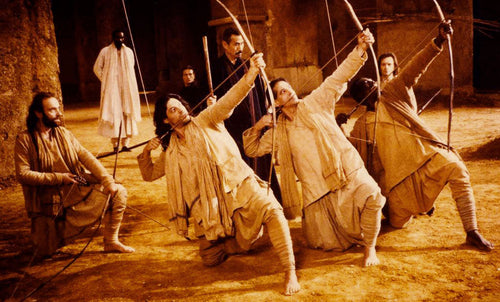
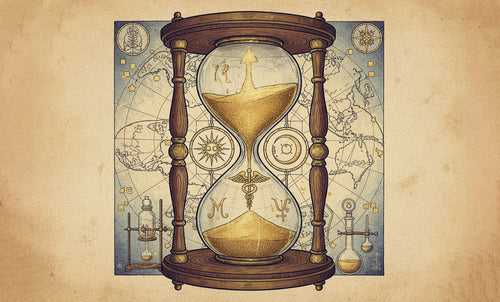
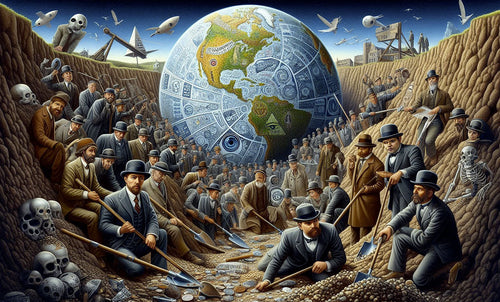

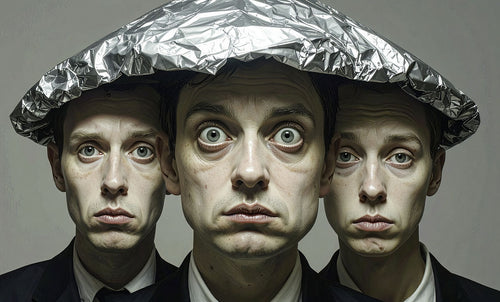


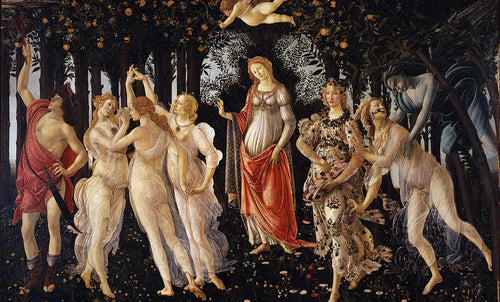








































1 comment
Bravo ,